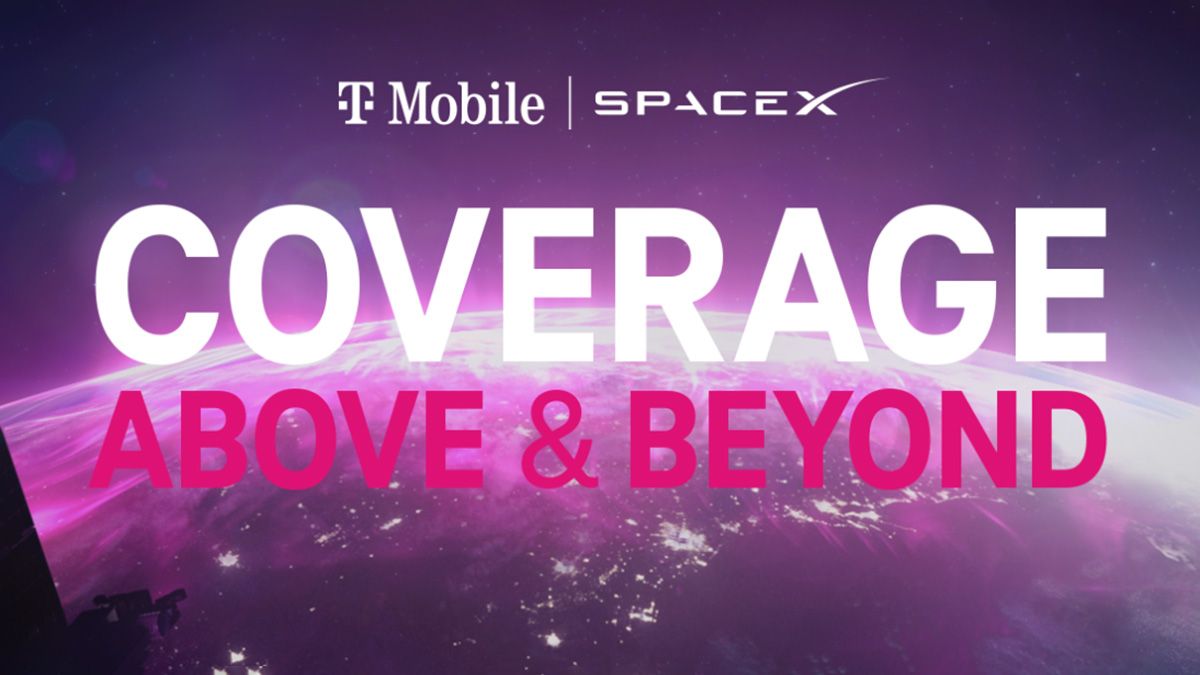SpaceX already operates a network of low-orbiting satellites that provide internet access in remote areas, called Starlink. T-Mobile has now announced that regular phones on its network will use Starlink internet as a fallback for dead zones.
T-Mobile CEO Mike Sievert and SpaceX Chief Engineer Elon Musk announced the partnership, which has the goal of supplanting T-Mobile's cell service (provided by cell towers on the ground) with Starlink satellites orbiting in low Earth orbit. Starlink's internet service is already a proven technology, though not without problems -- including that it needs a ground-based dish antenna. T-Mobile is aiming for existing phones to use Starlink connections, without any modifications or extra antennas.
T-Mobile said in a press release, "from the middle of Death Valley to the Great Smokey Mountains or even that persistent neighborhood dead zone, T-Mobile and SpaceX have a vision to give customers a crucial additional layer of connectivity in areas previously unreachable by cell signals from any provider. And the service aims to work with the phone already in your pocket." There will still be a few catches, though.
Elon Musk confirmed the service will require "Starlink V2" satellites, which will only start launching into space "next year." The first generation of Starlink satellites were designed to last 5-7 years in orbit, SpaceX just launched 53 more nodes on August 19, and another 54 first-generation satellites will go up on August 27. It will be a few years until the models capable of communicating with smartphones will be widely distributed.
The other issue is that Starlink-powered cell service will have more limitations than traditional cell service. It will start with text messaging only, including "SMS, MMS and participating messaging apps." T-Mobile and SpaceX are hoping to add voice and data coverage later down the road. The expected connection speed will be around 2-4 MB/s "per zone," shared across all devices in a certain area.
Despite the potential problems, if the service works as expected, it could be a game-changer for wireless service. Communication in remote areas usually requires a bulky and expensive satellite phone, which are built to use satellites in high Earth orbit. T-Mobile plans to offer Starlink connectivity for free on its "most popular plans," with other plans requiring a paid add-on. Musk said the service will eventually come to Tesla cars too.
Source: T-Mobile, The T-Mo Report

